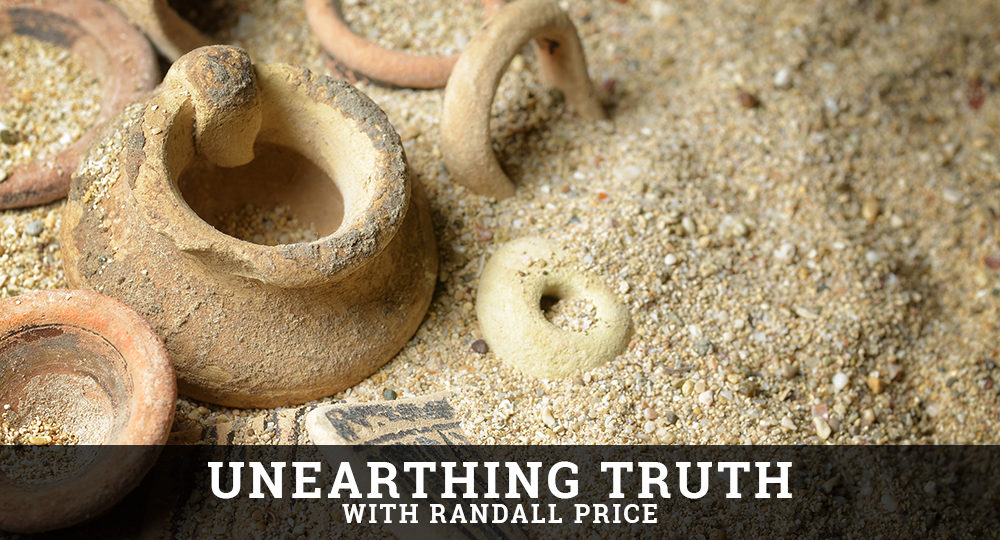How Do We Know the Exodus Happened?
“The actual evidence concerning the Exodus resembles the evidence for the unicorn,” declared Pennsylvania State University Jewish Studies Professor Baruch Halpern.1 The ancient Israelites created “a historical saga so powerful that it led biblical historians and archaeologists alike to recreate its mythical past—from stones and potsherds,” said Israeli scholar and archaeologist Israel Finkelstein.2
In other words, according to them, the Exodus never happened. Critical scholars like Halpern and Finkelstein view the Israelites’ Exodus from Egypt as mere storytelling, but with a moral message.
Such thinking leads to films like Ridley Scott’s Exodus: Gods and Kings, which radically depart from the Bible and remove any trace of a moral message. For this reason, Christian Bale, the actor who portrayed Moses in the film, said Moses was “likely schizophrenic and one of the most barbaric characters I ever read about in my life.”3
Critics of the Exodus claim Egypt left no direct evidence of the event. But Egyptologist Dr. Mansour Boraik has observed that if the Exodus happened, the Egyptians would not have recorded it because to do so would have been to admit defeat.4
The exact opposite is true of the Bible. The Bible depicts the Hebrews as unworthy of deliverance, disloyal, and disobedient even after the Exodus. In fact, the Old Testament often depicts Israel as having departed from God and the patriarchs of the faith as tarnished individuals. These facts underscore the text’s realism. What writers seeking to create a grand saga of their origins would paint such unvarnished, unflattering images of themselves?
The facts supporting the biblical account weigh in favor of historicity. First, there is the 3,500-year-old Passover tradition, which originated in Egypt at the time of the Exodus. If the Exodus never happened, how did Passover begin and become so central to Judaism? Egyptologist and archaeologist Donald B. Redford admitted, “Despite the lateness and unreliability of the story in Exodus, no one can deny that the tradition of Israel’s coming out of Egypt was one of long standing.”5
Second, the Bible includes details that correspond with Egyptian archaeology of the period: the practice of midwives using delivery stools; brickmaking;6 the use of Egyptian loanwords, such as Moses (cf. Ex. 2:10); the uniform use of the term pharaoh during the Egyptian New Kingdom (the 18th Dynasty of Egypt, ca. 1550–1292 BC); the harsh treatment of foreign, Semitic slaves and their use in building projects; and the importance of magic to the Egyptians (cf. 7:9–10).
Egyptian wall paintings and ancient documents also reveal taskmasters beat their slaves before questioning, as the taskmasters did to the Israelites.7 The Egyptian Tale of Sinuhe and the Annals of Thutmose III describe Canaan as a “land flowing with milk and honey,” as does the Bible. And ancient Egyptian accounts, such as the Ipuwer Papyrus (13th century BC), speak of plagues similar to the 10 plagues in the Bible.
Third, the Bible records geographical details that align with the Egyptian records. Archaeologists have discovered such places as Avaris (Tell ed-Dab’a), where a large group of Semitic people lived who seemingly disappeared overnight. They also have discovered Ramesses (Pi-Ramesse), Migdol (Tell Defari), Succoth (Tell Masuta), and the Balah and Timsah Lakes (Yam Suph)—all places the Bible mentions in relation to the Exodus (Ex. 1:11; 12:37; 14:1–2). Such geographical and historical details could not have been invented almost a thousand years later.
Other archaeological witnesses include the Merneptah Stele and the Berlin Pedestal Relief, both Egyptian records that attest to the fact the Hebrews became a powerful nation shortly after the Exodus; ancient Near Eastern law codes that parallel the Ten Commandments and Mosaic Law (Ur-Nammu Code, ca. 2000 BC; Laws of Eshunna, ca. 1900 BC; Lipit Ishtar Code, ca. 1870 BC; Code of Hammurabi, ca. 1700 BC; and Hittite Laws ca. 1500 BC); and, according to archaeological researcher Brad C. Sparks, 90 parallels in ancient Egyptian literature to the Exodus story.
Conservative Egyptologists continue to find new support for the biblical account. Thus we have good reasons to believe the Exodus happened.
ENDNOTES
- Kevin D. Miller, “Did the Exodus Never Happen?” christianitytoday.com, September 7, 1998 <goo.gl/hqyJDu>.
- Israel Finkelstein, “City-States to States,” Symbiosis, Symbolism, and the Power of the Past, ed. William G. Dever and Seymour Gitin (Winona Lake, IN: Eisenbrauns, 2003), 81.
- Andrew Brown, “Man versus myth: does it matter if the Moses story is based on fact?” theguardian.com, November 29, 2014 <goo.gl/s6h9PJ>.
- Bob Enyart and Fred Williams, “Evidence for the Exodus,” kgov.com, Mar 31, 2017 <goo.gl/9kDdwx>.
- Donald B. Redford, Egypt, Canaan, and Israel in Ancient Times (Princeton, NJ: Princeton University Press, 1992), 412.
- Brick-making appears to have been a labor specialization that was normative for slaves in ancient Egypt. The Tomb of Rekhmire from the Eighteenth Dynasty of Egypt (TT100) shows Levantine Asiatic and Nubian slaves making bricks. The Israelites were primarily, if not exclusively, brickmakers as opposed to builders (cf. Ex. 5:14–15, 17).
- In Exodus 5:14, the Israelite supervisors were beaten first then questioned, the same interrogation technique used during the tomb robbery incidents under Ramesses IX.









Not to mention the Biblical account…
Great article, plenty of evidence, especially about the Bible not glossing over the flaws even in Mosses character as well as others.